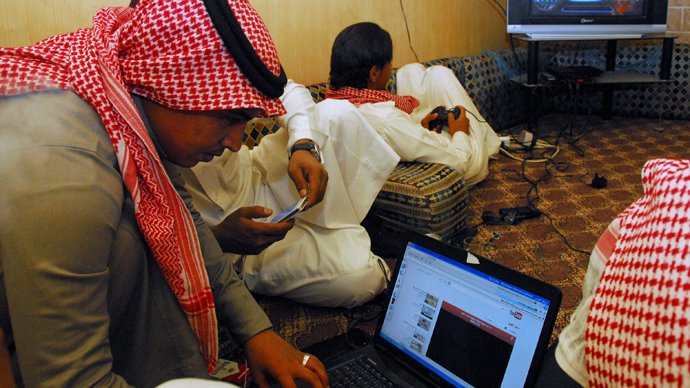
A Saudi court has sentenced seven cyber activists to between five to 10 years in prison for inciting protests, mainly by using Facebook.
The men were arrested in September last year, according to Human Rights Watch (HRW), and their trial began in April.
The activists were charged with posting online messages to encourage protests in Saudi Arabia, although they were not accused of directly taking part in demonstrations.
It is seen as the country’s latest move against online political dissent.
The New York-based rights group HRW said the case was heard in an anti-terrorism court.
The longest sentence of 10 years was reportedly given to an activist who set up two Facebook groups allegedly explaining the best protest techniques.

The rights group said the men had all admitted contributing to Facebook pages supporting the leading Shia cleric Tawfiq al-Amer, who was held in February 2011 after calling for a constitutional monarchy.
His arrest provoked anti-government rallies inspired by a wave of popular revolt in the country’s Eastern Region, where much of its crude oil is sourced.
The seven men were sentenced on June 24 for “allegedly inciting protests and harming public order, largely by using Facebook”, HRW said.
The court also barred them from travelling for additional periods.
Several of the defendants said they had been tortured into signing confessions, according to HRW.
The case contained two elements that the Saudi authorities are particularly sensitive about – political criticism expressed online and protests staged by the Shia minority in the east of the country.
Several Saudi human rights campaigners have recently been imprisoned. Two women were jailed earlier in June for allegedly inciting a woman against her husband, after they tried to help a Canadian who had complained of abuse by her Saudi husband.
HRW urged European Union officials to condemn the latest convictions ahead of a meeting with Gulf leaders on Sunday.
“Sending people off to years in prison for peaceful Facebook posts sends a strong message that there’s no safe way to speak out in Saudi Arabia, even on online social networks,” Joe Stork, HRW’s deputy Middle East director, said.